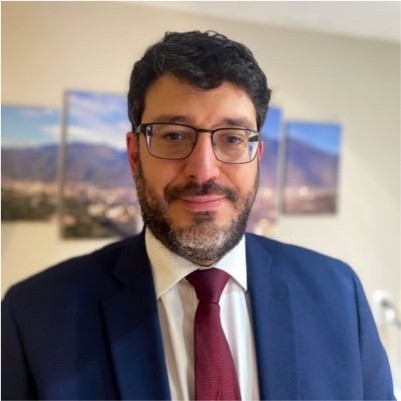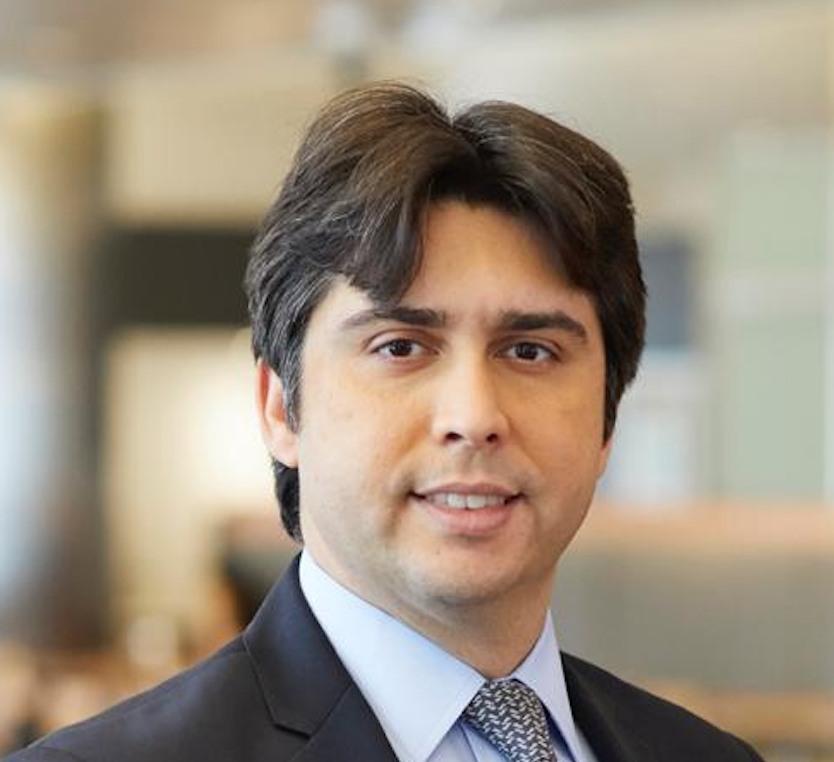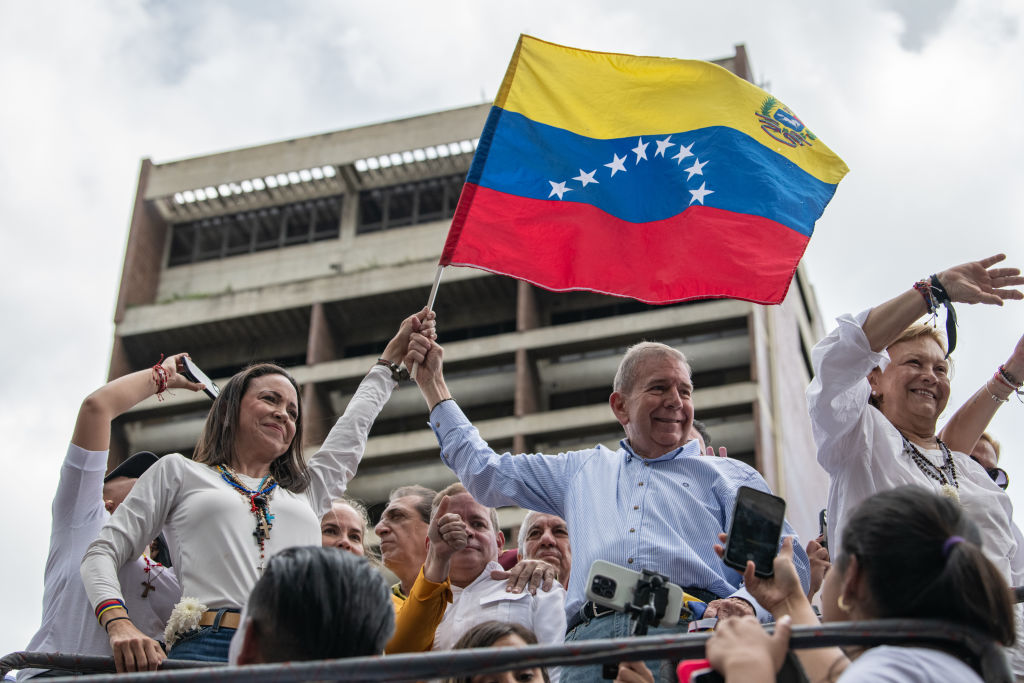Edmundo González Urrutia, the widely recognized winner of Venezuela’s July 28 presidential election, fled into exile on Saturday and is now in Spain seeking asylum, weakening the opposition’s quest to reverse President Nicolás Maduro’s fraudulent victory and prevent his third term as president.
A week ago, a Venezuelan court issued an arrest warrant against González Urrutia, charging him with usurpation of power, conspiracy, and sabotage, threatening his safety, freedom and political survival. “Today is a sad day for democracy in Venezuela,” European Union foreign policy chief Josep Borrell said in a statement, reacting to González Urrutia’s unexpected decision to flee Venezuela. “In a democracy, no political leader should be forced to seek asylum in another country. The EU will continue to support the Venezuelan people in their democratic aspirations.”
González Urrutia’s exile may send Venezuela’s post-election crisis into an unpredictable new phase and test the opposition’s popular support in the weeks and months ahead. While leading opposition figure María Corina Machado reiterated that she will stay in Venezuela facing Maduro and his inner circle, it’s unclear whether she’ll be able to withstand the regime’s next steps. Maduro has endured international condemnation for his claim of victory in the election, the ensuing crackdown on the opposition and others seeking the restoration of democracy.
AQ asked analysts to share their reactions and perspectives.

Tamara Taraciuk Broner
Taraciuk Broner is the Inter-American Dialogue’s Peter D. Bell Rule of Law Program director and the former deputy director of Human Rights Watch’s Americas Division.
González’s asylum should be understood as a chess game move—not a checkmate favoring the regime, as Maduro and his cronies would like it to be. Together with measures to take over the Argentine embassy’s security in Caracas, where six members of María Corina Machado’s team sought refuge, it should be a wake-up call regarding how far the regime is willing to go and its consequences.
The underlying reality hasn’t changed: The regime failed to back up its alleged electoral victory and is scaling up repression. The opposition published evidence showing that González won by a landslide. No democratic government in the region, including left-wing ones that in the past failed to distance themselves from Maduro, has supported the alleged official results. As Maduro loses international legitimacy, his chances of accessing markets and multilateral institutions fall, increasing his reliance on criminal networks to govern.
Maduro is buying time—to wear out the opposition’s legitimate claims for a transition, to scare people not to mobilize, and to push people out of the country, which would limit internal dissidence and increase remittances. González is now one of the 7.8 million Venezuelans who have been forced to leave the country. He is also part of a new, massive wave of migration that is expected if the crisis is not addressed properly, made up of people fleeing persecution who could present legitimate asylum claims.
If the international community does not act forcefully now, the possibility of a consolidated, repressive narco-state in South America will rise. For any negotiation to exist, it is essential to step up international pressure, in coordination with the opposition leadership, to show those clinging to power that their strategy has a very high cost. Possible measures include sanctioning top leadership and their family members, stepping up threats of prosecution abroad for grave human rights violations, corruption, drug trafficking, and money laundering, and limiting access to markets.
For some government officials implicated in crimes against humanity, their best option will be to seek refuge in undemocratic countries. However, many other members of the government, security forces, judiciary, and electoral authorities implicated in these crimes can obtain legal and sustainable benefits if they implement concrete actions to contribute to a transition to democracy. Given that power in the Maduro regime is not monolithic, planting the seeds of dissent within it is now more critical than ever.

José Ignacio Hernández
Hernández is a Constitutional and Administrative Law Professor at Venezuela’s UCV and UCAB; and a Senior Associate at the Center for Strategical and International Studies, CSIS.
González’s decision to seek asylum in Spain shows that elections are not enough to restore democracy in Venezuela, and that the negotiation efforts supported by Brazil and Colombia have failed. Without a new strategy from the international community, Maduro will transform his asylum into a victory.
One recurring criticism of the opposition’s strategy between 2018 and 2019 was the “abandonment” of the electoral route. However, this criticism overlooked the core issue: There was no “electoral route” at all. In addition to the recurring fraud, before July 28, Maduro’s self-proclamation of victory demonstrated that even a massive voter turnout and a landslide victory were not enough to bring democracy back. González’s asylum just confirmed that the root cause of the Venezuelan crisis is not electoral.
Brazil’s and Colombia’s efforts to negotiate with Maduro requesting the impartial verification of the vote also failed to understand the nature of the problem. Instead of allowing an unbiased and transparent verification, Maduro used the Electoral Chamber to fabricate a verification of his victory. At the same time, the National Electoral Council (CNE in Spanish) decided not to publish the result in the Electoral Gazette, ignoring the timid appeal made by the Chamber. Maduro will not justify his victory because he cannot. He decided to keep power at any cost, including forcing González out of the country.
Maduro could use this as a victory. The arbitrary arrest warrant issued against González created a dilemma for the government: enforcing the order would have increased the regime’s scrutiny while ignoring it would have decimated its authority. With González in Spain, the government has been relieved of this dilemma, and as a result, Maduro could score a victory.
To deter Maduro from benefiting from González´s asylum, the international community should embrace a new strategy that considers the true nature of the problem in Venezuela: a small elite compromised with blatant human rights violations and other criminal activities decided to retain power, regardless of the consequences.
The new strategy should weaken the current leaders while making it clear that there is no way out of this situation. To accomplish this, the international community must firmly announce that Maduro will not be acknowledged or treated as president and that the members of the ruling elite and their allies, including those in the business sector, will be held responsible for their actions.

Alejandro Arreaza
Andean economist at Barclays in New York
González’s decision to leave the country came after Maduro’s increasingly authoritarian government escalated its campaign to hold onto power. The event sets the stage for a new stalemate, creating a legitimacy crisis for Maduro that may push his regime further into isolation. Even if González’s departure becomes a short-term victory for Maduro, the opposition and the international community supporting it do not seem willing to capitulate and accept the regime’s consolidation.
Given Maduro’s refusal to cede power, breaking this stalemate will likely require a mix of carrots and sticks to encourage the regime to fracture, or at least create a significant risk of this happening, as to generate incentives to encourage members of the regime to be open to a negotiated solution.
An escalation of domestic and international pressure over the coming months—particularly ahead of the formal beginning of the new presidential term on January 10, 2025—still seems likely. It will bring new tests for the cohesion of the regime. Meanwhile, González’s departure is likely to weigh on the opposition’s morale; the remobilization of its base will be a critical challenge for the opposition’s leadership.
For now, Maduro’s biggest problem is that he is unlikely to deliver on promises made to some of his key constituents during the campaign, which, along with questions about his post-election legitimacy, makes him more vulnerable. His campaign tried to present him as a guarantor of stability and someone who could bring some normalization of the country’s relationships with the international community, seemingly in response to demands from factions within his coalition. Instead of making progress, those goals now seem ever more distant. Maduro could become a liability for his allies, potentially pushing them to seek alternatives. However, it remains unclear how long this may take.
To resolve the protracted crisis, a transition toward re-institutionalization remains necessary. The fact that Maduro remains in power despite the credible allegations of election fraud is a major departure from the roadmap set out by the international community to consider sanctions relief. This could block the possibility of meaningful economic recovery and a restructuring of the sovereign and PDVSA debts.
—





